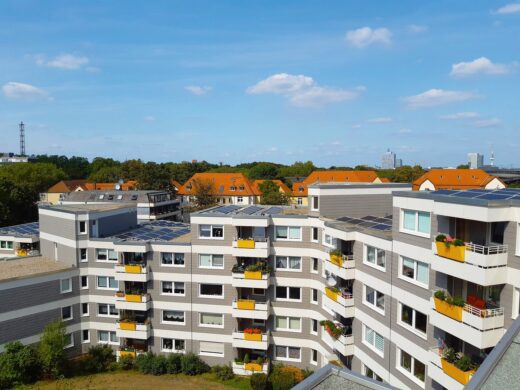Interlinked smoke alarms and 4 reasons why they are vital in modern architecture, Property smoke alarms, Doors
Interlinked Smoke Alarms and 4 Reasons Why They Are Vital in Modern Architecture
12 Oct 2022
A single smoke alarm is no longer enough to protect your family and property in the event of a fire. interconnected smoke alarms are now becoming a common safety feature in homes and businesses, for good reason. Here are some of the most important reasons why interconnected smoke alarms are vital in modern architecture.
1. They Provide Early Warning of a Fire
The most important function of any smoke alarm is to provide early warning of a fire. This is especially important in a large building or home where the fire may not be immediately visible. By having interconnected smoke alarms, you can be sure that everyone in the building will be alerted to the fire as soon as possible. With FireLink Direct’s interlinked alarms, you can ensure your home, business, or any facility is protected. Additionally, make sure to always have a fire extinguisher, especially in a business setting to ensure the safety of all employees.
2. They Can Save Lives
While the early warning of a fire is the most important function of an interconnected smoke alarm system, it is not the only life-saving benefit. In the event of a fire, time is of the essence. The sooner everyone is aware of the fire, the sooner they can evacuate. This can be especially important for those who are sleeping or otherwise not able to immediately react to a visible fire. Additionally, interconnected smoke alarms can provide an early warning to those who may not be able to see or smell the fire, such as young children or those with disabilities.
3. They Are Required by Law in Many Jurisdictions
In many jurisdictions, interconnected smoke alarms are required by law in new construction. This is because they are simply the best way to protect a building and its occupants from the dangers of fire. In some jurisdictions, interconnected smoke alarms may also be required in existing buildings that are undergoing renovations. Be sure to check with your local code enforcement office to see if interconnected smoke alarms are required in your area.
4. They Are Easy to Install
While interconnected smoke alarms may seem like a complicated system, they are quite easy to install. Most models simply require connecting the units with wires or wireless signals. Many manufacturers offer do-it-yourself kits that make installation even easier.
Additionally, most professional alarm companies offer installation services for an additional fee. And, while interconnected smoke alarms may have a higher upfront cost than traditional smoke alarms, they are quite cost-effective in the long run. This is because you only need to purchase and install one system for your entire home or business. Additionally, many insurance companies offer discounts for homes and businesses that have interconnected smoke alarms installed.
Perhaps the most important benefit of interconnected smoke alarms is the peace of mind they provide. Interconnected smoke alarms are quickly becoming a standard safety feature in homes and businesses across the country. Their many benefits make them a vital part of modern architecture. If you are considering installing an interconnected smoke alarm system in your home or business, be sure to check with your local code enforcement office to see if they are required. And, be sure to ask your professional alarm company about installation services and discounts.
Comments on this Interlinked Smoke Alarms and 4 Reasons Why They Are Vital in Modern Architecture article are welcome.
Property Fire Safety
Fire Safety Posts
Fire Damage Restoration and Remediation
Safety Precautions Against Home Fire
Fire-Safe Aluminium Rainscreen Cladding
How to avoid wrong choices in real estate investing

Qualities first-time landlords should look for in tenants

Building Articles
Contemporary Property Articles – architectural selection below:
Comments / photos for the Interlinked Smoke Alarms and 4 Reasons Why They Are Vital in Modern Architecture page welcome



